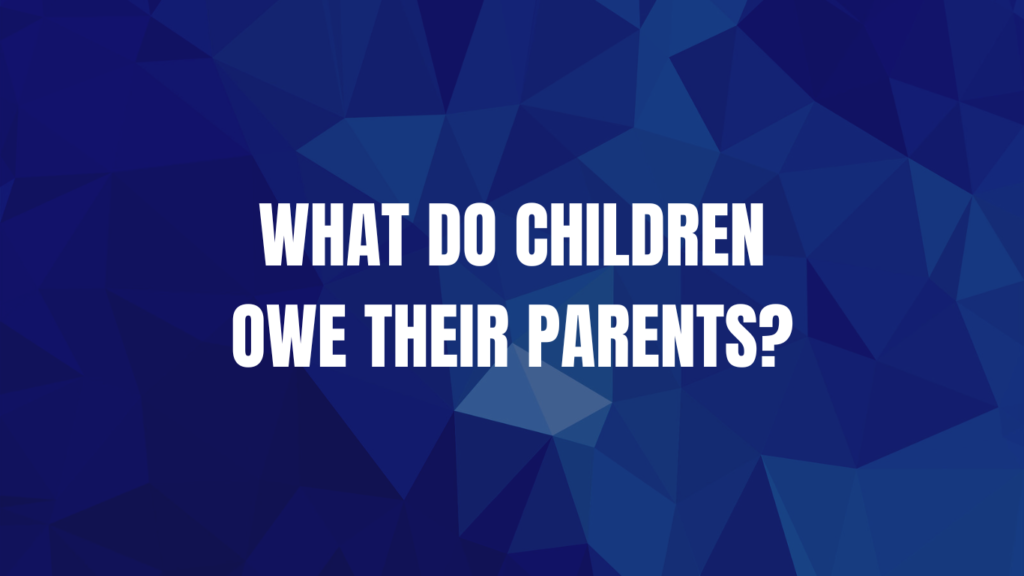Written by Chad Dollahite
God established and ordained three earthly institutions – government (Romans 13:1-7), the home (Genesis 2:18-24; Matthew 19:4-6), and the church (Matthew 16:18; Acts 20:28; 1 Peter 2:5-10). Of those three institutions, the home is the oldest (on earth, at least, since the church is, in one sense, eternal – Ephesians 3:10,11). The home is critical to the other two institutions, for it is the foundation of any society, and the church is made up of individuals who all, in some way or another, have families/homes. Whether families, government, or the church, God has given various individuals specific roles in those institutions, and they can function best only when each person fulfills his/her role as God intended.
The home as God intended is a little taste of heaven on earth (Ephesians 5:21-6:4). Far too many have departed from God’s pattern for the home, and the results have been disastrous. Husbands and wives have a role to play in the home, and where such is the case, fathers and mothers have a role to play as well. Children also have a role in the home, and that is the focus of this article. The question as to what children owe their parents is best answered in two parts.
What do children owe their parents in youth? A child’s obligation to his parents in youth can essentially be summed up in one word: honor. A child’s obligation to parents in his youth is simply to respect, or honor, his parents. Under the Law of Moses, God specifically commanded, “Honor your father and your mother, that your days may be long upon the land which the LORD your God is giving you” (Exodus 20:12). Furthermore, God told Israel (through Moses), “Cursed is the one who treats his father or his mother with contempt” (Deuteronomy 27:16). The wise man lamented the lack of respect some children have for their parents, writing, “There is a generation that curses its father, and does not bless its mother” (Proverbs 30:11).
Nowhere is honor for one’s parents in youth seen more clearly than in a child’s obedience to his parents. The new covenant reaffirms the command for children to respect their parents and ties such together with obedience to parents. Through Paul, the Holy Spirit instructs, “Children, obey your parents in the Lord, for this is right. Honor your father and mother, which is the first commandment with promise: that it may be well with you and you may live long on the earth” (Ephesians 6:1-3). The command to obey parents is given the stipulation “in the Lord,” meaning children ought not obey a command from a parent that goes against the teaching of Scripture (see Acts 5:29), but even then, a child ought to act with respect toward his parents. Jesus, our perfect example (1 Peter 2:21), set the standard of honor and obedience to His earthly parents, being “subject to them” (Luke 2:51). Young children owe their parents great honor, and when such is given, children will speak and behave respectfully.
What do grown children owe their parents? While emphasis is often on what young children owe their parents while living at home under their parents’ rule and authority, a child’s obligation to his parents does not end when he leaves the home. Older children’s obligation to their parents is also summed up with the concept of honor, or respect. Under the Law of Moses, it was a capital offense to curse one’s father or mother (Exodus 21:17), and it was a capital offense for one physically to strike his father or mother (Exodus 21:15). The wise man admonishes, “Listen to your father who begot you, and do not despise your mother when she is old” (Proverbs 23:22). While the command to children in Ephesians 6:1 is limited to being under the parents’ authority, the command in Ephesians 6:2 is not. In giving instruction as to when to take a Christian widow into the care of the local congregation, Paul told Timothy the church should not take care of a widow who has children or grandchildren, for those should “first learn to show piety at home and to repay their parents; for this is good and acceptable before God” (1 Timothy 5:5). It is in that context that Paul wrote, “But if anyone does not provide for his own, and especially for those of his household, he has denied the faith and is worse than an unbeliever” (1 Timothy 5:8). Again, the perfect example here is seen in Jesus, as He, even in His dying moments, made sure His mother was going to be cared for (John 19:25-27). Even in adulthood, children owe their parents great honor, which includes caring for them in their aging years, spending time with them, and praying for them often.
Good parents sacrifice so much of their time and money—and even themselves—in caring for and rearing their children; it is only fitting that such men and women receive great respect and honor. And, while it is true that some parents are not what they should be, God has commanded that some people are to be honored and respected simply for their position, such as leaders in government (Romans 13:1-7) and parents (Ephesians 6:2-3). Whatever else may be favorably said about a person, if that person does not honor his/her parents, repentance and change are needed. The answer to the question about what children owe their parents is multi faceted, but it ultimately comes down to one word: RESPECT.

